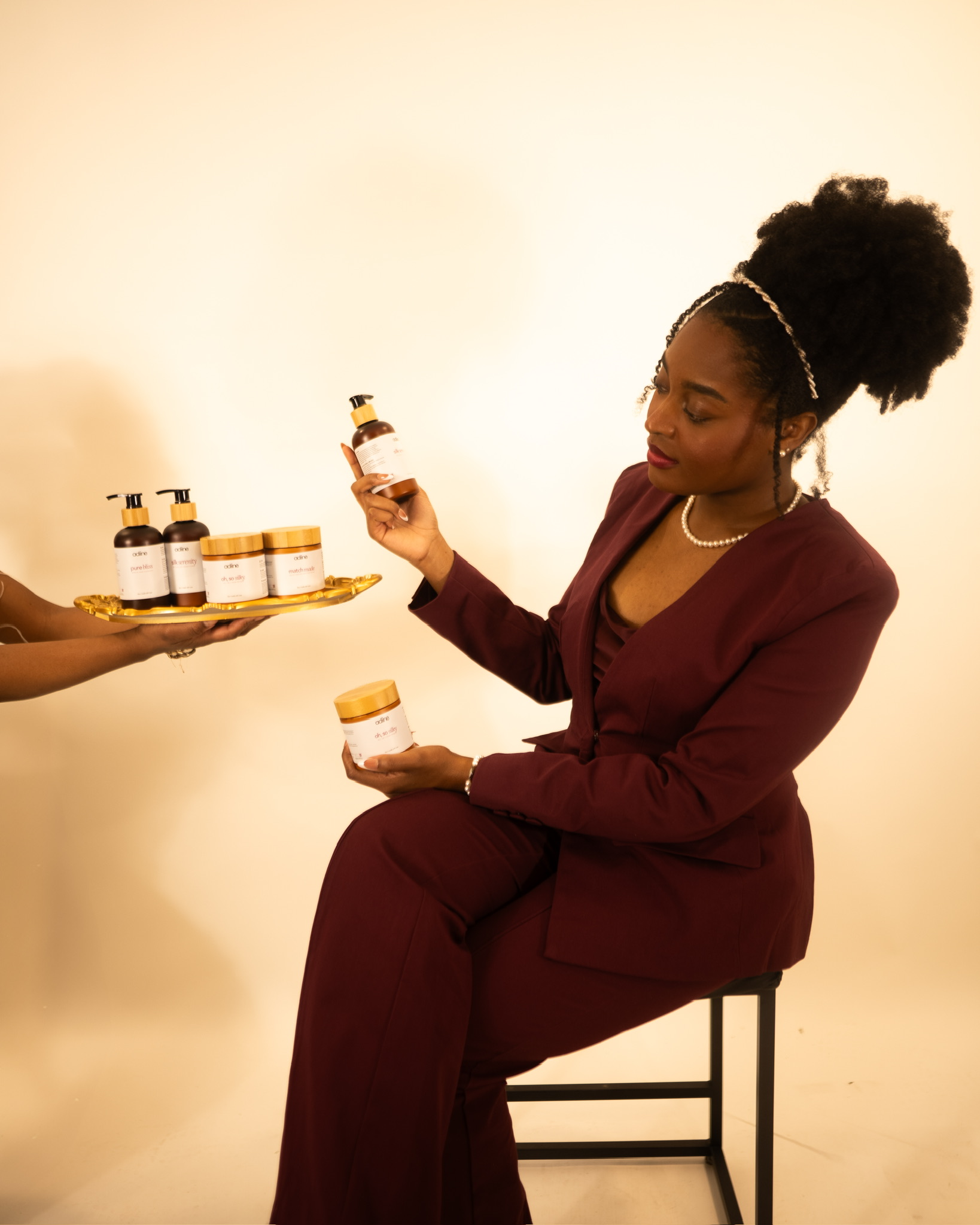We caught up with the brilliant and insightful Adeline Din a few weeks ago and have shared our conversation below.
Adeline, thanks for taking the time to share your stories with us today Let’s start with a story that highlights an important way in which your brand diverges from the industry standard.
ADIINE exists because the industry failed us.
For years, the haircare industry has treated kinky hair as a problem to be fixed rather than a beauty to be nurtured. We’ve seen it in the formulas—products overloaded with heavy butters that sit on our strands without truly penetrating. We’ve seen it in the messaging—”tame,” “manage,” “control”—language that subtly tells us our hair is unruly, difficult, too much. And we’ve seen it in the lack of representation, where even in the “natural hair” space, our textures are often pushed to the margins in favor of looser curls.
I know this struggle intimately. My own journey with my hair began at 13, in a world where no one seemed to make products with my kinky/coily strands in mind. I spent years cycling through products that left my hair dry, frustrated by an industry that didn’t seem to care about what kinky hair actually needed. It wasn’t until the pandemic forced me to slow down that I truly started understanding my hair—what it thrived on, what it rejected, and, most importantly, how simple care could be if products were actually designed for it. ADIINE was born out of that realization.
We don’t just create moisture-rich products; we challenge the narrative that loving and caring for kinky hair has to be complicated or burdensome. Unlike many brands that cater to our hair but still operate within the industry’s flawed framework, ADIINE refuses to sell struggle as a necessity. We formulate with intention, balancing moisture and penetration so that kinky hair gets what it actually needs: hydration that lasts, softness that isn’t weighed down, and nourishment that doesn’t come at the expense of buildup.
Beyond our formulas, we disrupt the industry’s standard in the way we show up. We don’t just sell products; we create a space where Black women with kinky hair feel seen and celebrated. Our marketing isn’t about transformation—it’s about affirmation. Our social media isn’t an endless loop of tutorials designed to “fix” our hair—it’s a digital sanctuary that normalizes simply existing in it. And our events, like Tea n’ Tangles, are built around community, reinforcing that haircare isn’t just about what we put on our strands but also about how we feel when we engage with it.
The beauty industry has spent decades making us feel like we need to fight our hair. ADIINE exists to remind us that we don’t. That’s the difference. And that’s why it matters.
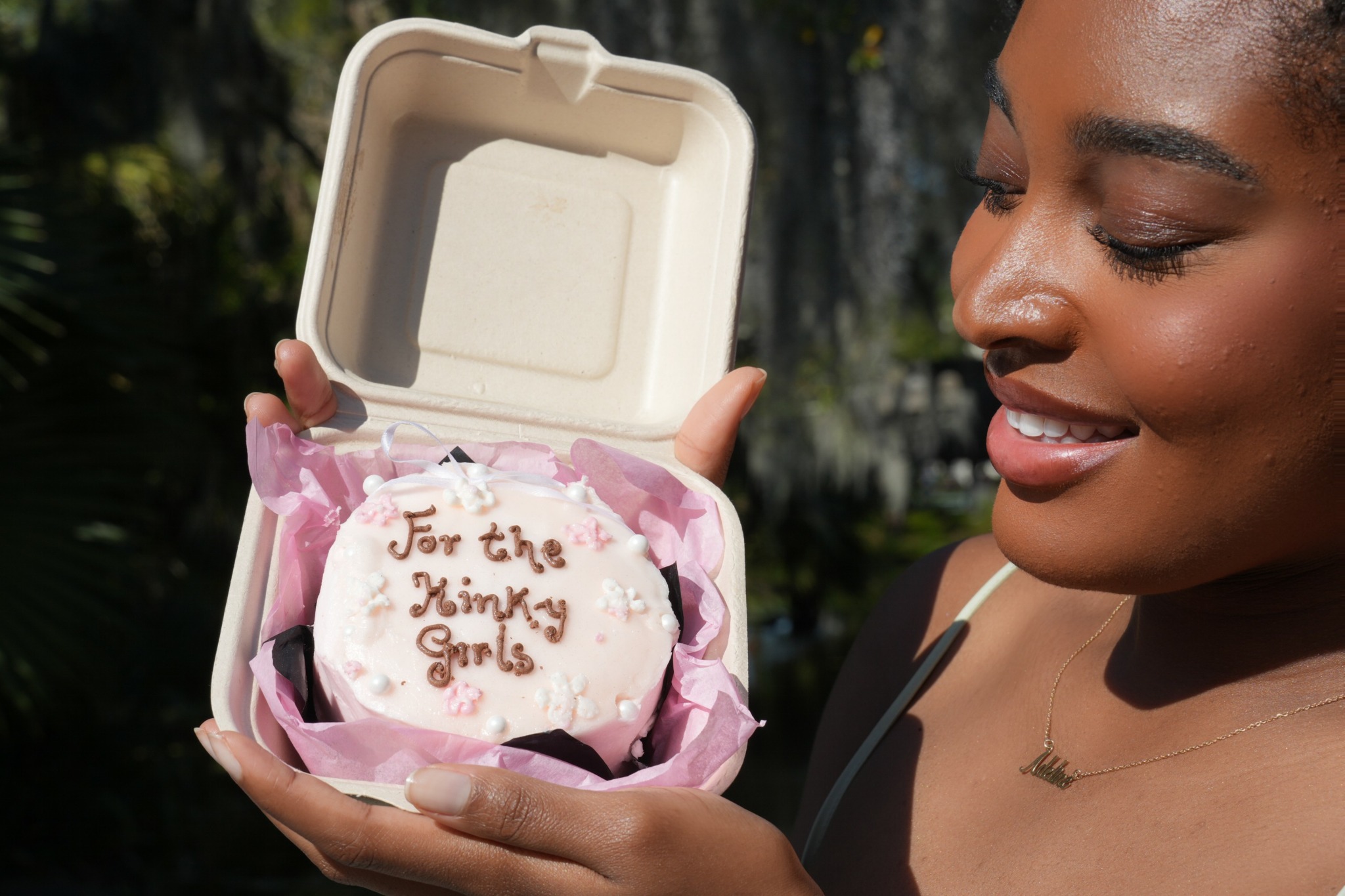
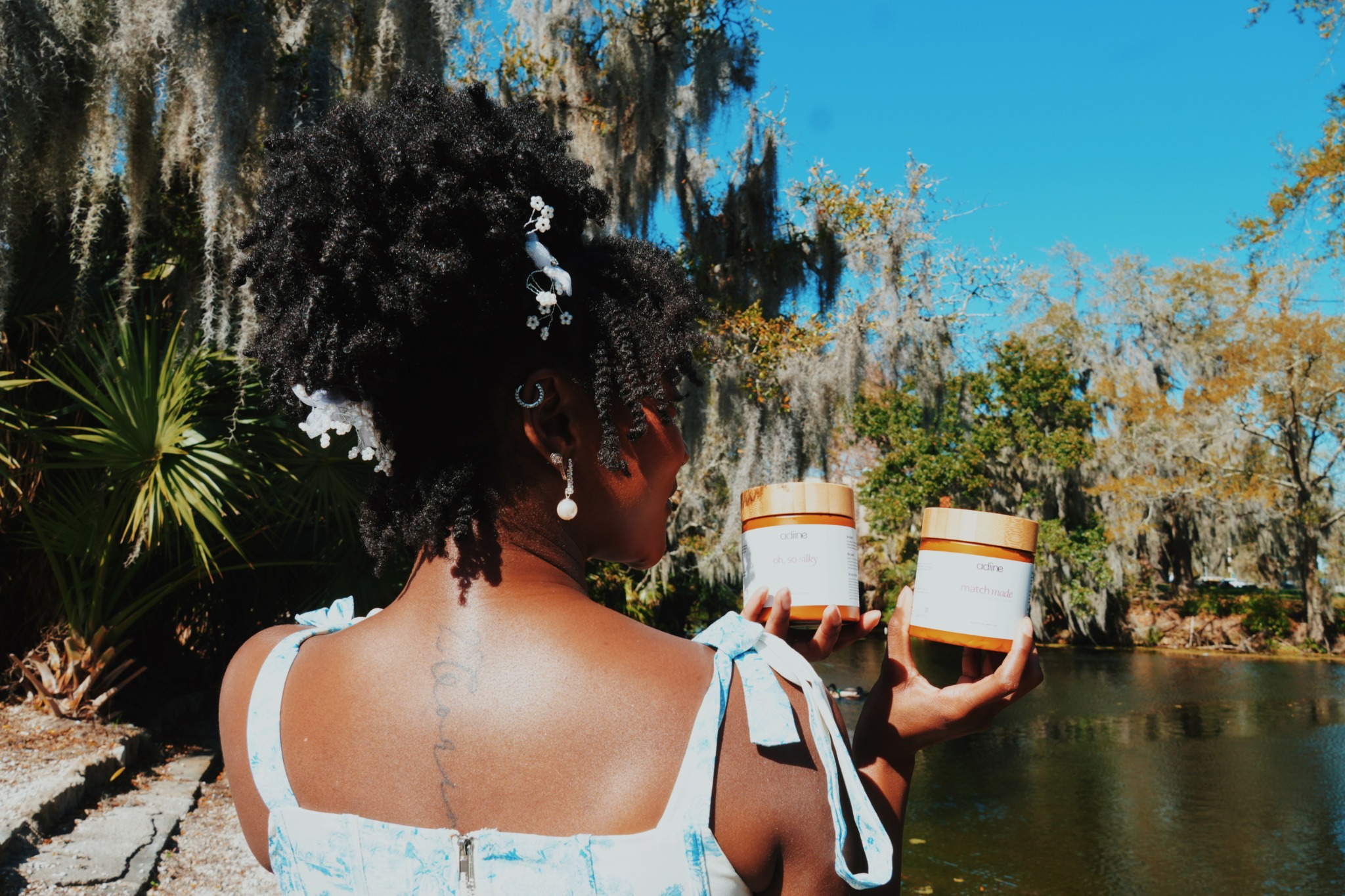
As always, we appreciate you sharing your insights and we’ve got a few more questions for you, but before we get to all of that can you take a minute to introduce yourself and give our readers some of your back background and context?
ADIINE is a love letter to the kinky girls.
“ADIINE is more than a brand— it’s a reminder to every Black girl and woman that our beauty is not defined by society’s standards: it’s defined by us.” – Adé, founder + CEO
ADIINE exists because the haircare industry has never fully considered us—the kinky girls. For decades, we’ve been sold products that only half-work, pumped up with synthetics and fillers that don’t truly prioritize moisture and the health of our hair. We’ve been given messaging that frames our hair as something to “fix” rather than nurture. And we’ve been placed at the fringes of representation, even in spaces meant for “natural hair.” But ADIINE was built to change that.
My personal journey with my hair started when I was 13. Like so many young Black girls, I was handed products that weren’t made with my texture in mind, expected to make them work despite the dryness, the buildup, the endless trial and error. The industry told us that the struggle was normal, that maintaining kinky hair was inherently difficult—it all made kinky hair feel like a burden rather than a beauty. But I always wondered: what if it wasn’t?
During the pandemic, I had the time to finally sit with my hair and unlearn everything I had been conditioned to believe. I started deep-diving into ingredients, researching formulation, and paying attention to what my hair actually needed, not just what the industry told me it should have. That’s when everything clicked. The issue was never my texture, but the way the industry approached it. Kinky hair isn’t difficult—it’s just deeply misunderstood. And I now realize that every experience leading up to that moment was necessary—because it was through that process that God did His best work in me. He revealed the truth, healed my relationship with my hair, and ultimately assigned me to create ADIINE—a brand rooted in purpose, built to defy industry norms, and designed to honor the lived experiences of Black women with kinky hair.
ADIINE isn’t just haircare; it’s a redefinition of what it means to care for kinky hair. From the moment a product touches your hands to the way your hair feels days after use, performance dictates experience, and experience shapes perception. Too often, we’ve been told that dryness, breakage, and frustration are just part of having kinky hair. But with the right formulations, that struggle disappears. The right products don’t just make hair feel good—they transform how we see ourselves.
The right formulations don’t just make hair feel good—they transform how we interact with and perceive our hair. The Oh, So Kinky Collection exists to elevate the entire experience of caring for kinky hair. Every product in this lineup respects a chain of moisture, ensuring that hydration isn’t just added—it’s layered, sealed, and protected so that your hair stays soft and lush beyond wash day. Our Pure Bliss Shampoo cleanses without stripping, making the first step of washday feel gentle yet effective. Our Silk Serenity Conditioner melts into the strands, replenishing hydration and smoothing the cuticle for that signature ADIINE softness. The iconic Oh So Silky Hair Primer creates the perfect base for lasting moisture, ensuring that every layer of hydration stays locked in. And the Match Made Buttercream is the final step, sealing everything in with a balance of lightweight butters and oils that nourish without buildup. Every name was chosen with intention, to directly challenge a stereotype often associated with kinky hair or the kinky haircare experience. That’s the beauty of ADIINE: intention.
But ADIINE is more than products—it’s a lifestyle rooted in holistic wellness. We understand that haircare isn’t just about what you put on your strands; it’s about how you feel while doing it. Our Rooted in Wellness Initiative is a direct response to the toxic beauty standards that have long compromised the health of Black women. We create clean, toxin-free products that prioritize both hair health and overall well-being, while also raising awareness about the harmful ingredients that have been normalized in mainstream beauty. Through education and advocacy, we push for greater transparency in the industry—being the change we want to see.
What sets ADIINE apart is our refusal to conform to the industry’s flawed standards. We don’t just exclude harmful ingredients—we replace them with genuinely natural ones that do the work. No fillers, synthetic additives, parabens, sulfates, silicones, or phthalates. Just potent, effective ingredients designed specifically for kinky hair. The haircare industry has spent years profiting off of our struggles and insecurities. ADIINE exists to break that cycle. We don’t market struggle. We don’t push complicated routines. We don’t exclude the kinkiest textures from our branding while claiming to serve “all curls.” Instead, we create products that make caring for kinky hair feel natural, intuitive, and joyful.
I’m most proud of the fact that ADIINE is built on truth and representation. Our brand isn’t about following trends—it’s about rewriting the narrative for Black women with kinky hair. While the haircare space has spent years conditioning us to believe that our hair is difficult, that dryness is inevitable and that struggle is just part of the process—ADIINE rejects all of it. We’re not just here to sell haircare—we’re here to inspire a shift in perspective. We’re here to ensure that kinky hair isn’t an afterthought but a priority. We exist so that the next generation of Black girls won’t have to question whether their hair was considered when a product was made. They’ll just know.
At the heart of ADIINE is the belief that you shouldn’t have to struggle to love your kinky hair. We’re here to make sure you don’t. This isn’t just business. It’s a reclamation.
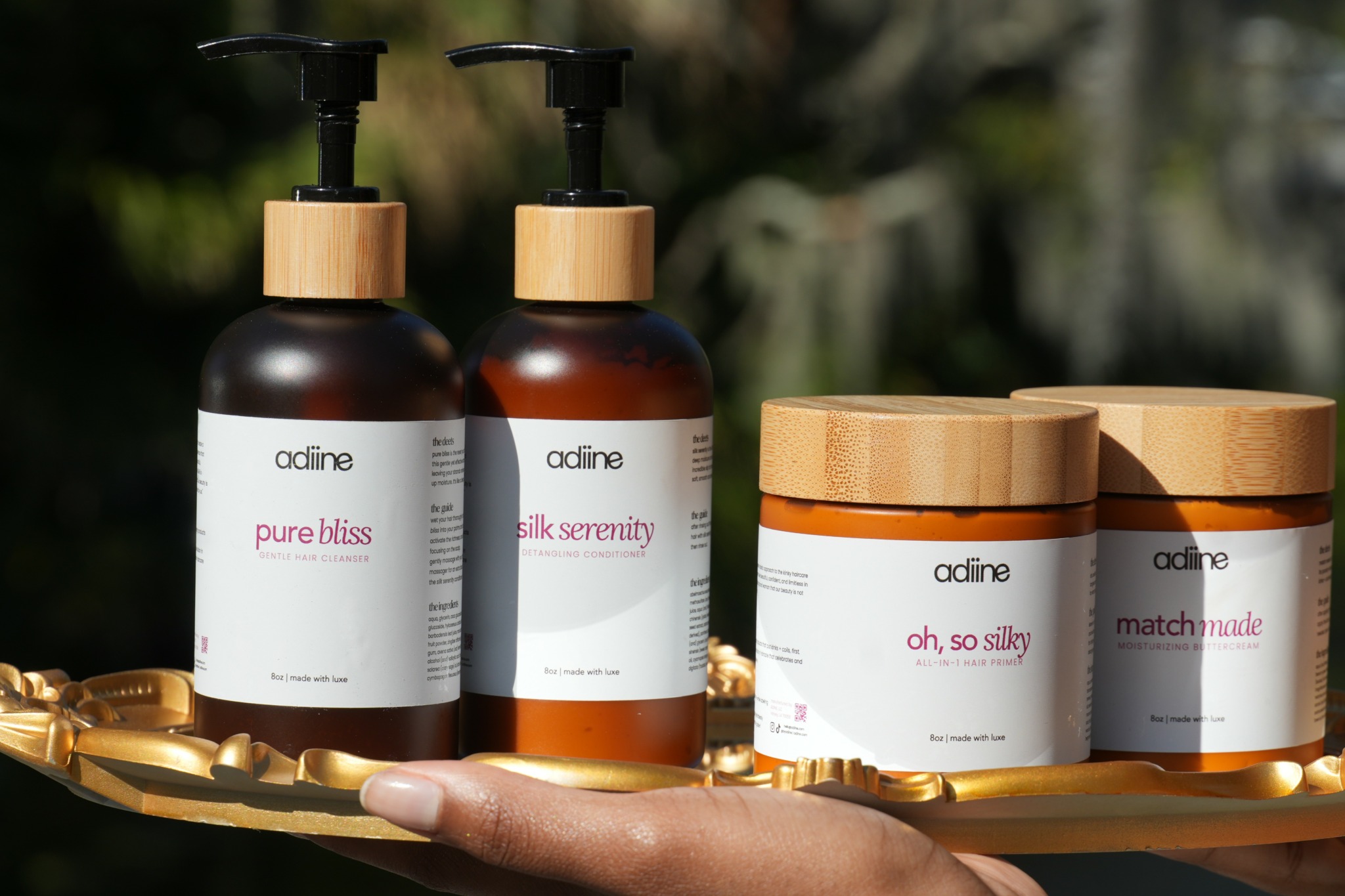
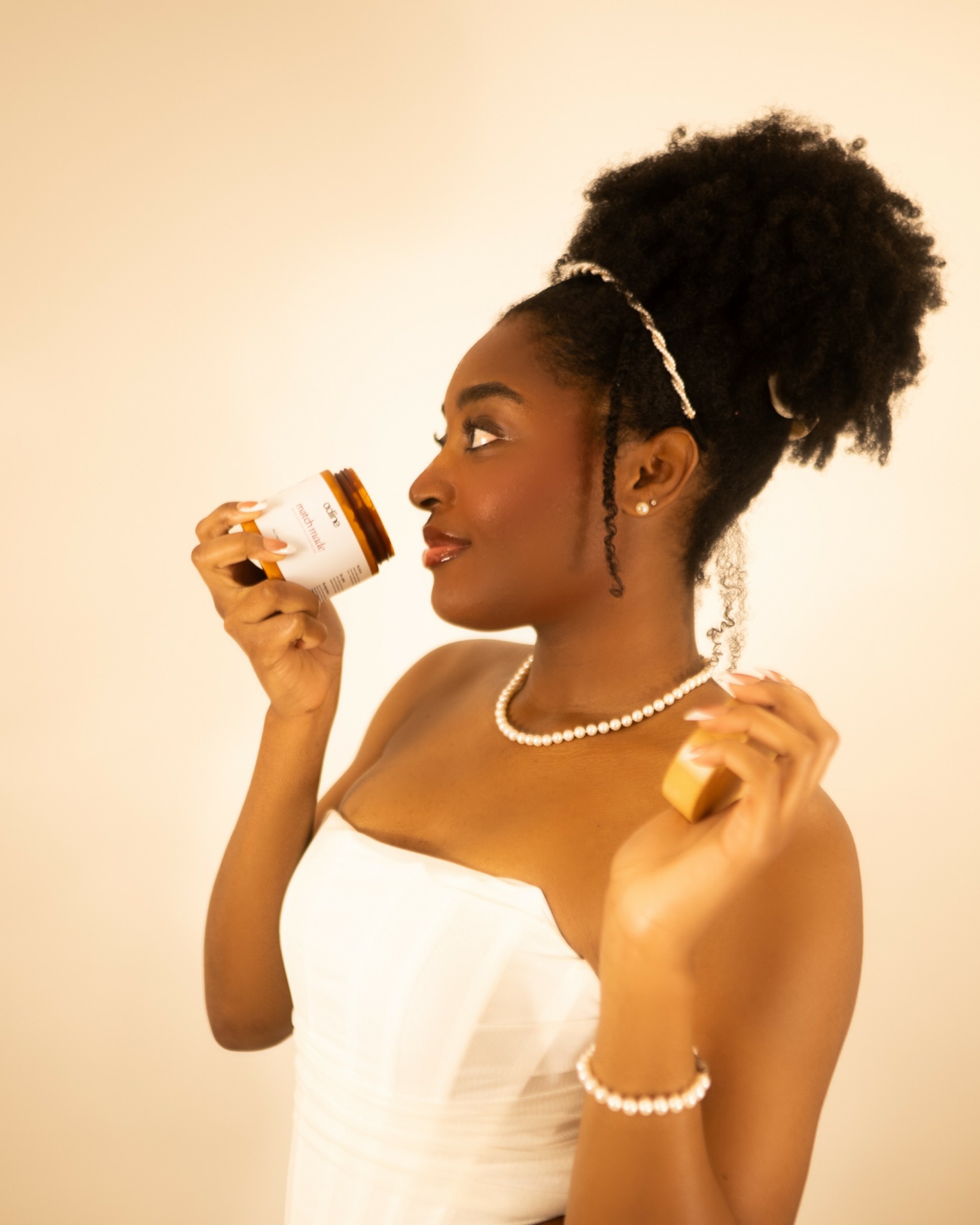
Can you tell us about a time you’ve had to pivot?
The rebrand from Afroluxe Organics to ADIINE was, in itself, a major pivot. Afroluxe Organics was the beginning—a reflection of my early passion for natural haircare. But as I grew, so did my understanding of what I truly wanted to build. I realized that the brand I initially created didn’t fully capture my vision, nor did it reflect the depth of my connection to kinky hair. The name, the packaging, the positioning—it all felt like it wasn’t quite hitting the mark.
That was the moment I realized God wasn’t just nudging me to pivot—He was calling me to build something deeper, something more true to the vision He placed on my heart. ADIINE is my way of telling Black women with kinky hair: You are seen. You are prioritized. You are worthy of products that truly serve you. This pivot wasn’t just about aesthetics or branding—it was about alignment. ADIINE represents everything I wished I had growing up: intentional formulations, empowering messaging, and a brand that understands the kinky haircare experience.
Starting over wasn’t easy, but it was necessary. And looking back, it was one of the best decisions I ever made.

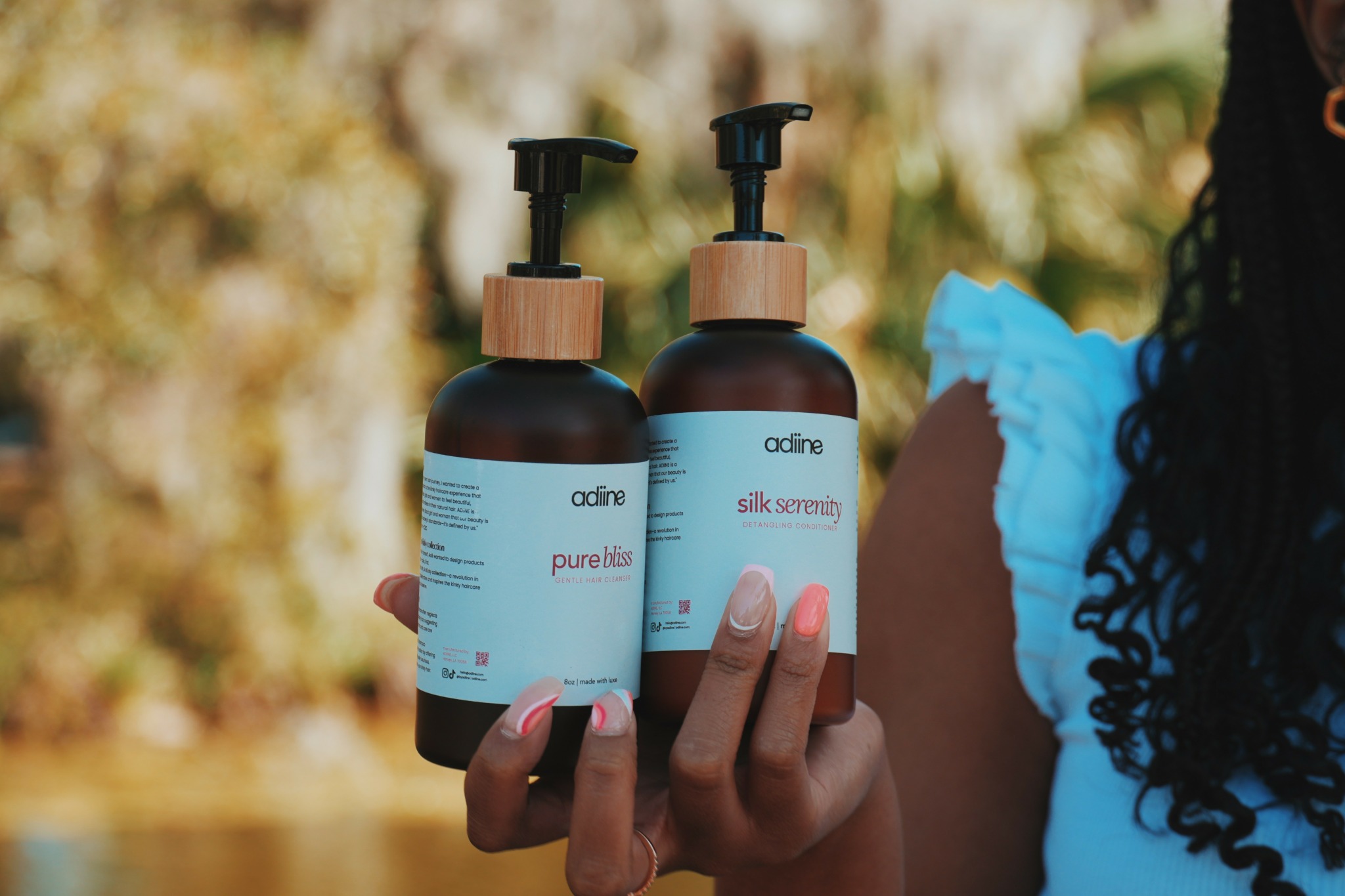
Can you share a story from your journey that illustrates your resilience?
Resilience for me meant knowing when to pause, even when I felt like stopping altogether. I initially planned to launch ADIINE in October 2024, but deep down, I wasn’t fully in love with the brand as it stood. I felt like I was rushing the process—not because I was ready, but because I felt like I had something to prove. Freshly graduated from undergrad and struggling to find a job in my field, I saw my business as the only tangible proof of my skills. I told myself I had to push forward, even though my spirit was unsettled.
I went through with a brand photoshoot, but a month later, I got the call that changed everything—my photographer told me the SD card had corrupted, and we’d lost all the photos. Strangely, I didn’t feel angry. I felt relieved. That moment was confirmation. God had stepped in to protect me from launching something I wasn’t truly aligned with, giving me the pause I didn’t have the strength to take on my own. I was given a chance to course-correct before I made a huge mistake. That moment forced me to stop and reevaluate.
I didn’t have much—barely $1,000 to fund the launch, including inventory, packaging, and event costs. From the outside, it could’ve looked like a sign to stop. But spiritually, I knew it was a call to go deeper. I got back in the lab, refined my formulas, and searched for packaging that captured the essence of ADIINE at first glance. I stripped everything down and rebuilt from the ground up—with prayer, intention, and purpose.
That setback turned out to be a blessing. It forced me to create something I was truly proud of—something that aligned with my heart and His will, not just my timeline. Resilience, for me, isn’t just about pushing through. It’s about being willing to pause, to listen, and to trust that what God is building through you is worth the wait.
Contact Info:
- Website: https://adiine.com
- Instagram: @byadiine , @luxadii , @adelinedin
- Linkedin: https://www.linkedin.com/in/adeline-din
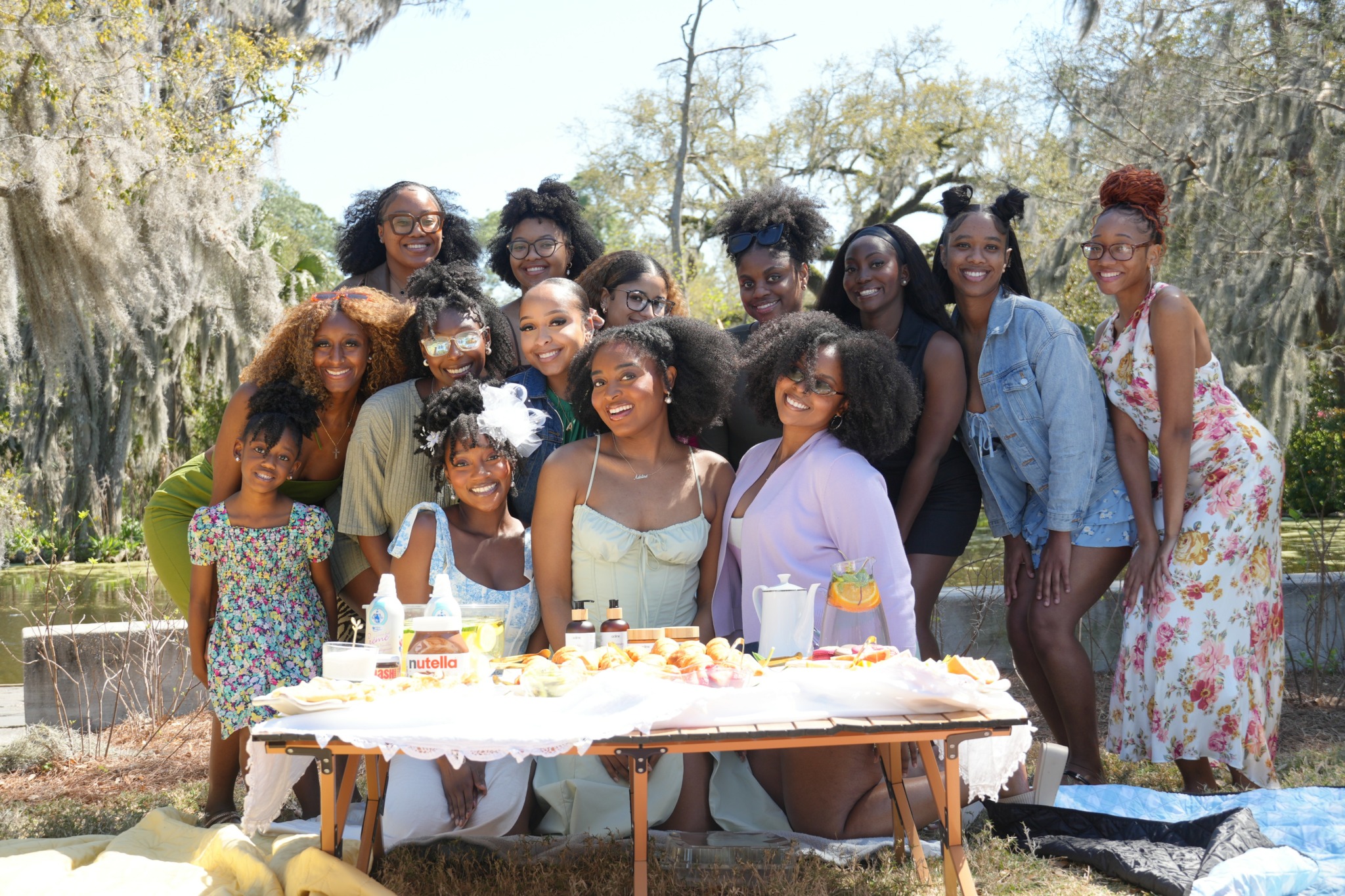
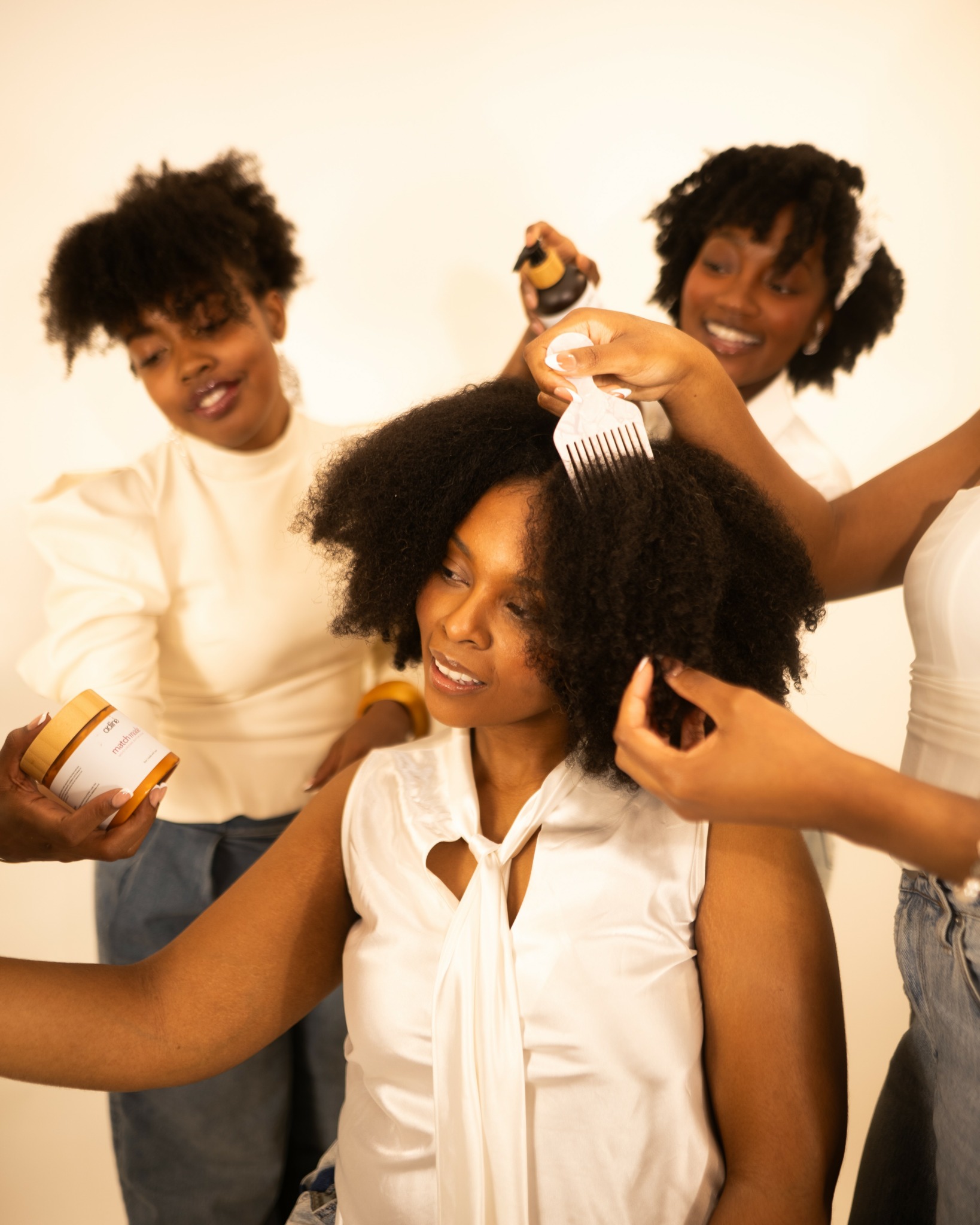
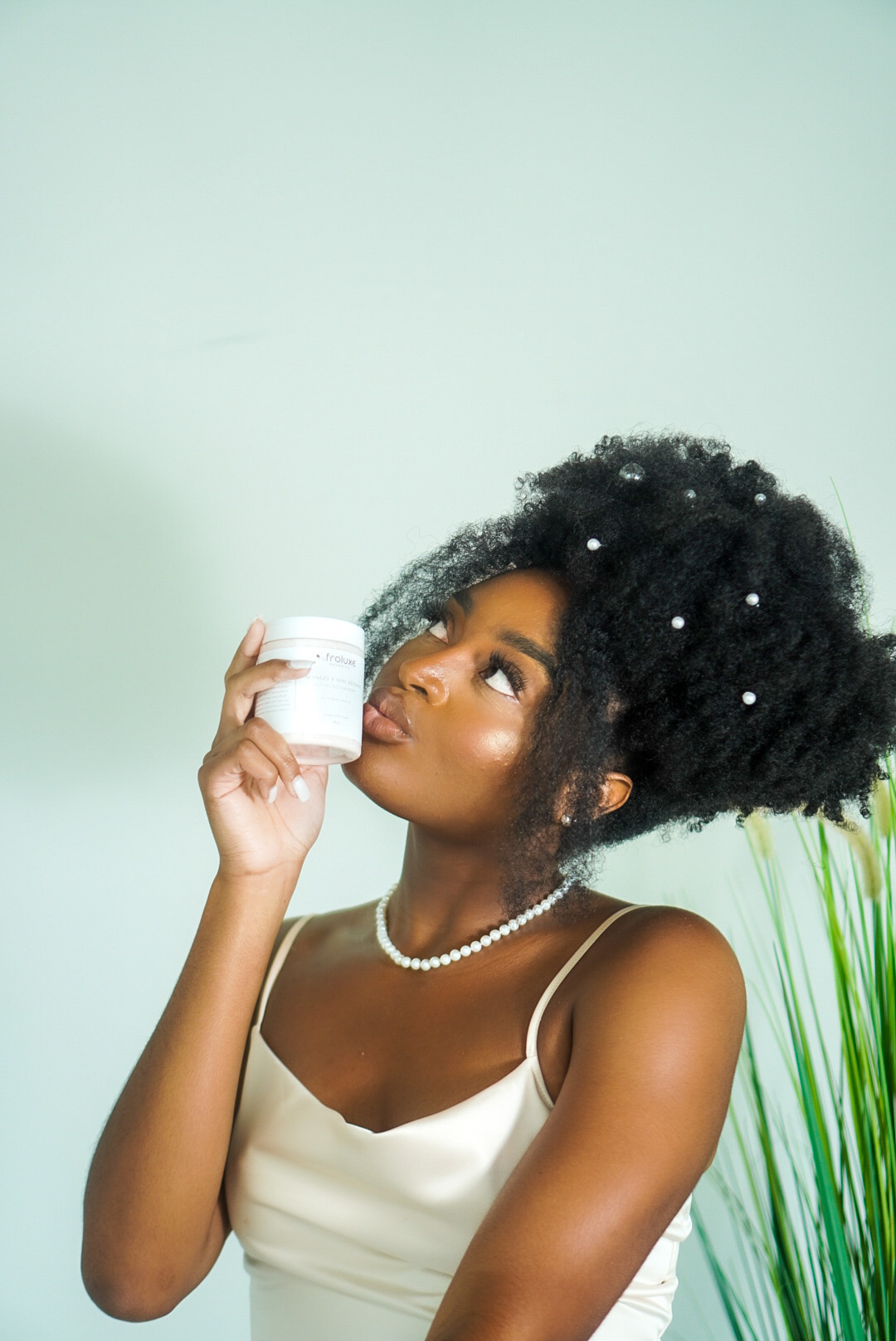
Image Credits
De’Auan McClaine
Orlando Burks Jr.


